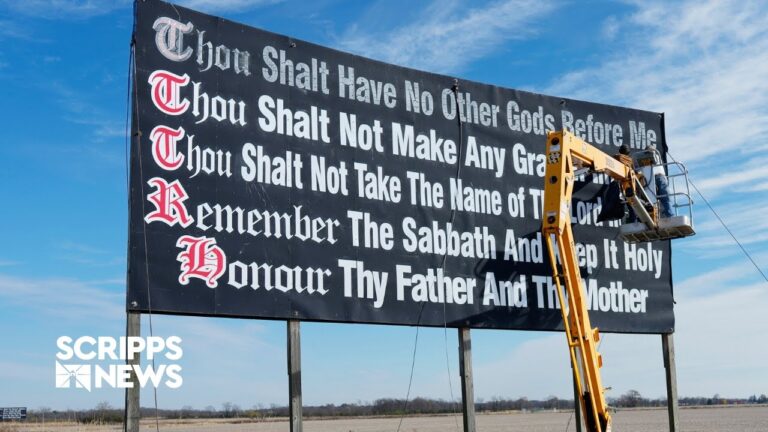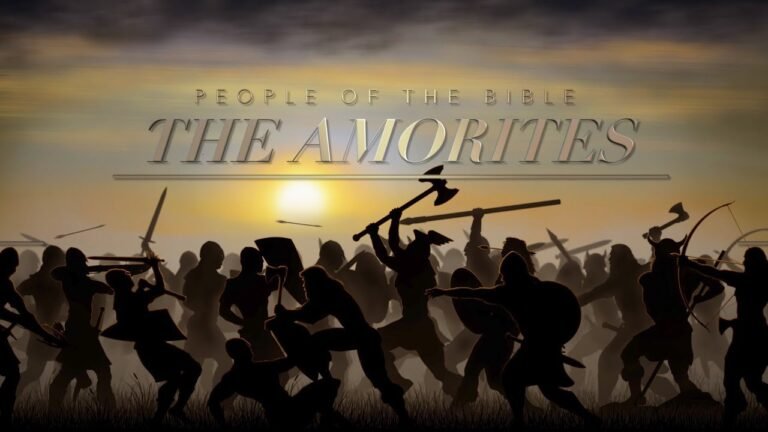Full Text of Louisiana’s Ten Commandments Law
In an intriguing intersection of law and faith, the Louisiana Ten Commandments Law has sparked significant debate and interest. This legislation, which mandates the display of the Ten Commandments in public schools and government buildings, raises questions about the boundaries of religious expression in public spaces. As discussions continue around its implications for church-state separation, the full text of the law offers insight into its intentions and potential impacts. Exploring the nuances of this law reveals not only its legal ramifications but also its cultural significance in a state where faith plays a vital role in community life.
What does Louisiana’s Ten Commandments law entail?
Louisiana’s Ten Commandments law allows the display of the Ten Commandments in public buildings, promoting religious heritage without mandating religious observance.
What is the recent law in Louisiana regarding the Ten Commandments?
Louisiana has made headlines by becoming the first state to mandate the display of the Ten Commandments in public school classrooms, a requirement set to take effect in 2025. This new law, approved recently, is anticipated to ignite significant legal debates surrounding the separation of church and state, as it raises questions about the role of religious texts in public education. As schools prepare for this controversial change, the implications for both educators and students are poised to spark a nationwide dialogue on religious expression in public spaces.
What does the establishment clause of the Ten Commandments entail in Louisiana?
On June 19, 2024, Louisiana took a significant step in its educational policy with the signing of House Bill No. 71. This new law mandates that by January 1, 2025, all K-12 public schools, charter schools, and state post-secondary institutions must prominently display a poster-size copy of the Ten Commandments in their classrooms. This initiative aims to promote moral values and encourage ethical discussions among students in an educational setting.
The establishment of this law has sparked discussions about the role of religious texts in public education and the balance between academic freedom and the expression of religious beliefs. Advocates argue that the Ten Commandments can serve as a foundational moral guide, while opponents raise concerns about the separation of church and state. As Louisiana prepares for this transition, the implications of such a display will likely resonate beyond the classroom, influencing broader conversations about religion in public life.
Is it required by Louisiana law to display the Ten Commandments in classrooms?
Louisiana’s recent legislation mandating the display of the Ten Commandments in public school classrooms has stirred significant legal discussions. However, a new court filing reveals that the enforcement of this law will not take effect until November 15, 2024, leaving a window for further examination and potential challenges to the policy.
This delay highlights the ongoing legal scrutiny surrounding the law, as various stakeholders voice concerns about its implications for religious freedom and educational environments. As the state approaches the enforcement date, the debate over the intersection of law and religion in schools is likely to intensify, keeping the issue at the forefront of public discourse.
Understanding the Legal Landscape of Faith
The intersection of faith and law is a complex terrain that shapes how religious beliefs are practiced and protected. As societies evolve, legal frameworks must adapt to accommodate diverse expressions of faith while safeguarding individual rights. Understanding this legal landscape is essential for both religious communities and legal practitioners, as it influences everything from public worship to the rights of individuals within religious institutions.
Navigating the legal implications of faith requires awareness of constitutional protections, such as the freedom of religion, as well as local and international laws that may impact religious practices. Courts often play a pivotal role in interpreting these laws, balancing the rights of individuals against broader societal interests. This dynamic can lead to landmark cases that redefine the boundaries of religious expression and governmental authority, making it primordial for communities to stay informed about relevant legal developments.
Moreover, as interfaith interactions increase in today’s globalized world, understanding the legal landscape of faith fosters dialogue and cooperation among different belief systems. It encourages mutual respect and legal recognition of diverse traditions, ultimately contributing to a more harmonious society. By engaging with these legal principles, individuals and communities can better navigate the challenges and opportunities that arise at the intersection of faith and law.
A Guide to Louisiana’s Ten Commandments Legislation
Louisiana’s Ten Commandments legislation has sparked significant debate and interest, reflecting the state’s unique cultural landscape. This law allows for the display of the Ten Commandments in public spaces, particularly in government buildings, as a nod to the deep-rooted religious heritage of many Louisiana residents. Proponents argue that this legislation honors historical values and promotes moral guidance, while critics raise concerns about the separation of church and state, fearing potential infringements on religious freedom.
As communities navigate the implications of this law, discussions surrounding the balance between tradition and constitutional rights are more relevant than ever. Town halls and public forums have become a platform for citizens to express their views, fostering a dialogue that is both passionate and informative. By understanding the nuances of Louisiana’s Ten Commandments legislation, residents can engage in meaningful conversations that reflect their diverse perspectives while upholding the principles of democracy and respect for all beliefs.
Exploring the Implications of the Ten Commandments Law
The Ten Commandments serve as a foundational moral framework that has influenced legal systems, ethical standards, and cultural norms for centuries. Rooted in ancient traditions, these commandments encapsulate essential principles of human behavior, emphasizing respect, integrity, and accountability. Their enduring relevance invites reflection on how these guidelines can be interpreted in contemporary society, challenging individuals and communities to uphold values that foster harmony and justice.
As we explore the implications of the Ten Commandments in today’s world, it becomes clear that their teachings transcend religious boundaries, offering universal lessons applicable to diverse contexts. From guiding personal conduct to shaping communal laws, these principles encourage a collective commitment to ethical living. By integrating the wisdom of the Ten Commandments into modern discourse, we can inspire a renewed focus on morality that not only strengthens interpersonal relationships but also cultivates a more compassionate and equitable society.
Your Essential Resource on Religious Display in Louisiana
Louisiana is a vibrant tapestry of cultures, and its religious display reflects this rich diversity. From the ornate altars of Catholic cathedrals to the spirited gatherings of voodoo practitioners, the state showcases a unique blend of traditions. Festivals throughout the year, such as Mardi Gras and All Saints’ Day, provide an opportunity for communities to come together, celebrating their beliefs through colorful parades, music, and rituals that capture the essence of Louisiana’s spiritual life.
In addition to its diverse faiths, Louisiana is home to numerous historic sites that serve as a testament to its religious heritage. Churches, synagogues, and temples dot the landscape, each telling a story of the people who built them and the communities they serve. Visitors can explore these sites, gaining insights into the state’s complex history and the role that religion plays in shaping its identity. Guided tours and informational displays make it easy for anyone to appreciate the architectural beauty and cultural significance of these landmarks.
As the conversation around religious expression continues to evolve, Louisiana remains a beacon of tolerance and celebration. The state’s commitment to honoring its multifaceted religious landscape fosters an environment where all beliefs can coexist. This dedication not only enriches the lives of its residents but also invites visitors to immerse themselves in the spiritual stories that define Louisiana, making it a must-visit destination for anyone seeking a deeper understanding of faith in America.
The Louisiana Ten Commandments Law serves as a provocative reminder of the ongoing debate surrounding the intersection of religion and government in public spaces. By examining the full text, one can appreciate both the intention behind its enactment and the complexities it presents in a diverse society. This law not only reflects the cultural values of Louisiana but also invites broader discussions on the implications of such measures in a pluralistic democracy. As communities navigate these intricate issues, the balance between tradition and inclusivity remains a critical challenge for lawmakers and citizens alike.







